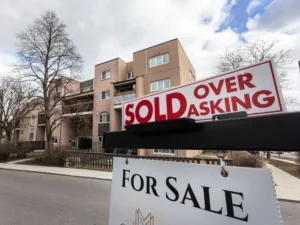Ready to pay off your mortgage?
After signing a mountain of paperwork and becoming a proud homeowner, you might be eager to pay off the mortgage early. Owning a home free and clear is terrific, but it may not always be the best use of your money. In this article we’ll cover who should pay off their mortgage ahead of schedule and 7 ways to make it happen as quickly as possible, if it’s a smart financial move for you.
Advantages of Paying Off a Mortgage Early
When it comes to prioritizing your debt, mortgages are way down on the list. For many, that advice may seem counterintuitive because mortgages are a huge debt to carry. Let’s summarize the pros and cons of getting rid of a mortgage before we cover 7 strategies to do it.
In a nutshell, the advantage of paying off a mortgage (or any type of debt) early is that you pay less interest. For example, if you owe $150,000 on a 30-year, fixed-rate mortgage at 5%, your monthly payment will be about $800. If you keep the mortgage for 30 years, you’ll end up paying a total of $140,000 in additional interest. Yes, that almost doubles the actual cost of the property (if you have it for 3 decades).
But if you get a $20,000 windfall and use it to pay down your mortgage in the fourth year, you’ll pay off the loan in 23 years instead of 30. You cut the total interest from $140,000 to $98,000—saving about $42,000 over the life of the loan.
Disadvantages of Paying Off a Mortgage Early
But the disadvantages of paying off a mortgage early come when your money could have been better spent. Mortgages are relatively cheap debt. Right now the going rate for a 5-year, fixed-rate mortgage is just under 3%. Once you send extra money to pay down a mortgage it’s tied up in your property. If you unexpectedly lose your job or suddenly have a large expense, you won’t be able to get that money back easily, if at all. Additionally, you may be losing out on the opportunity to invest your extra money for returns that are much higher than the after-tax rate that you’re paying on your mortgage.
While getting rid of any type of debt is ultimately good for your finances, paying it off in the right order is essential. Always consider your mortgage in the context of your entire financial situation. If you don’t have an emergency fund, aren’t investing at least 10% of your gross income for retirement, or have high rate debt, (such such as credit cards, payday loans, or student loans) don’t even think about sending extra money to your mortgage.
Living mortgage-free may sound good, but the bottom line is that it’s not always the best use of your money. You’re much better off saving for emergencies, getting rid of expensive debt, and shoring up your retirement funds, before paying off your home ahead of schedule.
7 Ways to Pay Off a Mortgage Early
Before you make any extra mortgage payments, make sure that your lender doesn’t charge a prepayment penalty. If paying off a mortgage early is wise for your situation, there are many different strategies you can use. Some are easy on your pocketbook but take more time, while others may be more challenging for your finances, but whittle down your balance faster.
Here are 7 strategies to pay off your mortgage early:
Strategy #1: Make bi-weekly payments
Some mortgages offer an accelerated, biweekly payment schedule, which is a great strategy. Biweekly payments aren’t magic — they simply take advantage of the fact that there are 13 weeks in each quarter, not 12, and there are 52 weeks in a year, not 48.
By paying one half of your mortgage payment every other week, you end up making one extra full payment each year. This strategy works especially well if you get paid every other week, so the biweekly loan payments occur close to each payday.
Here’s an example: Anne’s fixed rate mortgage is just under $160,000 to be repaid over 30 years at 6.5% interest. Her payment is $1,000 per month or $12,000 per year. If she keeps that payment schedule, over the life of the loan she’ll pay a total of about $202,000 in interest.
But if she makes biweekly payments, she pays half the monthly payment, or $500, every other week. That means she pays a total of $13,000 per year instead of $12,000. Keeping a biweekly schedule reduces Christine’s interest expense from about $202,000 to $184,000, saving $18,000. Not to mention that she’d pay off the loan in just over 27 years instead of 30. Brilliant!
Problem is, some lenders may not offer a biweekly payment schedule because they don’t want to give up any interest income or deal with the administrative hassle. Instead of applying your payment to principal early, they may just put your money in an escrow account and hold it until they receive your full payment. If that’s the case, making biweekly payments won’t do you any good. So check with your lender about the best way to start making biweekly payments. If they make it complicated or charge a big fee, simply use another payoff strategy that we cover here.
Strategy #2: Make an extra payment each year
If you can’t get a mortgage lender to apply biweekly payments as you send them, make one extra payment a year that gets fully applied to your principal balance.
Let’s say your monthly mortgage payment for principal and interest is $1,200. Divide that over 12 months and save $100 per month. At the end of the year, you’ve got a nice extra amount to send.
As we previously mentioned, the key is to make sure that extra mortgage payments get applied to your principal, not just set aside for the next payment. Make it clear by putting “apply to principal” in the memo section of your paper check or online payment.
Or you could make the payment through an online account with your lender. Most of the big banks, such as Royal Bank of Canada (RBC), Toronto-Dominion Bank (TD), Bank of Nova Scotia (Scotiabank), Bank of Montreal (BMO), and Canadian Imperial Bank of Commerce (CIBC), have payment portals where you can easily indicate that extra payments go to your principal balance.
Strategy #3: Add an extra amount each month
If you’re determined to pay down your mortgage early, every little bit will help. Instead of saving to make an additional large payment once a year, pay an extra amount each month.
Let’s say you have a $100,000, 30-year, fixed-rate mortgage at 4.5%. If you add an extra $100 to your payment each month, you’d pay it off almost 9 years earlier and save over $26,000 in interest.
Find a number that works for you, no matter if it’s an extra $10 or $1,000 per month. If you get a raise, send the net increase in your paycheck to your mortgage each month. You won’t even miss the money.
Strategy #4: Apply your windfalls
While you can pay off your mortgage in a slow, steady way by regularly paying the same amount each month, you don’t have to be consistent. There’s nothing wrong with sending one big payment when you can.
If you get a bonus at work, a tax refund, or an inheritance, put all of it toward your mortgage one month and then go back to your regular payments.
Strategy #5: Round up your payments
If you don’t have a lot of extra money to put towards paying off your mortgage early, you could simply round up your monthly payments.
For instance, if your payment is $970, why not just pay $1,000? Again, be sure to indicate that the extra should go toward paying down your principal balance.
Strategy #6: Set a target payoff date
If you have a specific date in mind that you want to be mortgage free—such as on your 50th birthday, when your kids are finally out of the house, or when you retire — figure out how much extra it will take.
Since the math is complicated, use a mortgage payoff calculator to crunch the numbers. Enter different amounts of extra principal payments until the final payoff date is close to your target.
Strategy #7: Refinance
One way to pay off a mortgage faster is to refinance at a lower interest rate, for a shorter term, or both. Keep an eye on rates and seriously consider refinancing if they fall at least one percent below the rate you’re currently paying. Refinancing comes with expenses, so for it to be a good deal you need to be sure that you’ll stay in your home long enough to recoup the costs.
If you refinance for a lower rate, you could continue paying your old, higher payment, sending the extra to your principal. The amount you’ll save depends on your situation, but could be thousands and it would probably shave years off your loan term.
If you refinance for a shorter term, such as 15 years, the payments will be higher, so make sure you can afford it. A shorter term significantly cuts the amount of interest you pay in addition to getting out of debt sooner — but gives you less flexibility if your financial situation changes.
To get the effect of a shorter term, without the risk, just make payments as if you had a 15-year loan. That puts you in control, not the lender. Simply use an online calculator to get the payment you’d need to make to pay off the loan in the timeframe you want.
Bottom line – if you have rock solid finances with emergency savings, insurance, consistent retirement contributions, and no debt besides a mortgage, then we highly recommend using these 7 strategies to pay off your mortgage. But if you’re not there yet, don’t put the cart before the horse.
If you’re feeling stuck and simply want some unbiased, mortgage advice, please give us a call. We love helping people save money!















